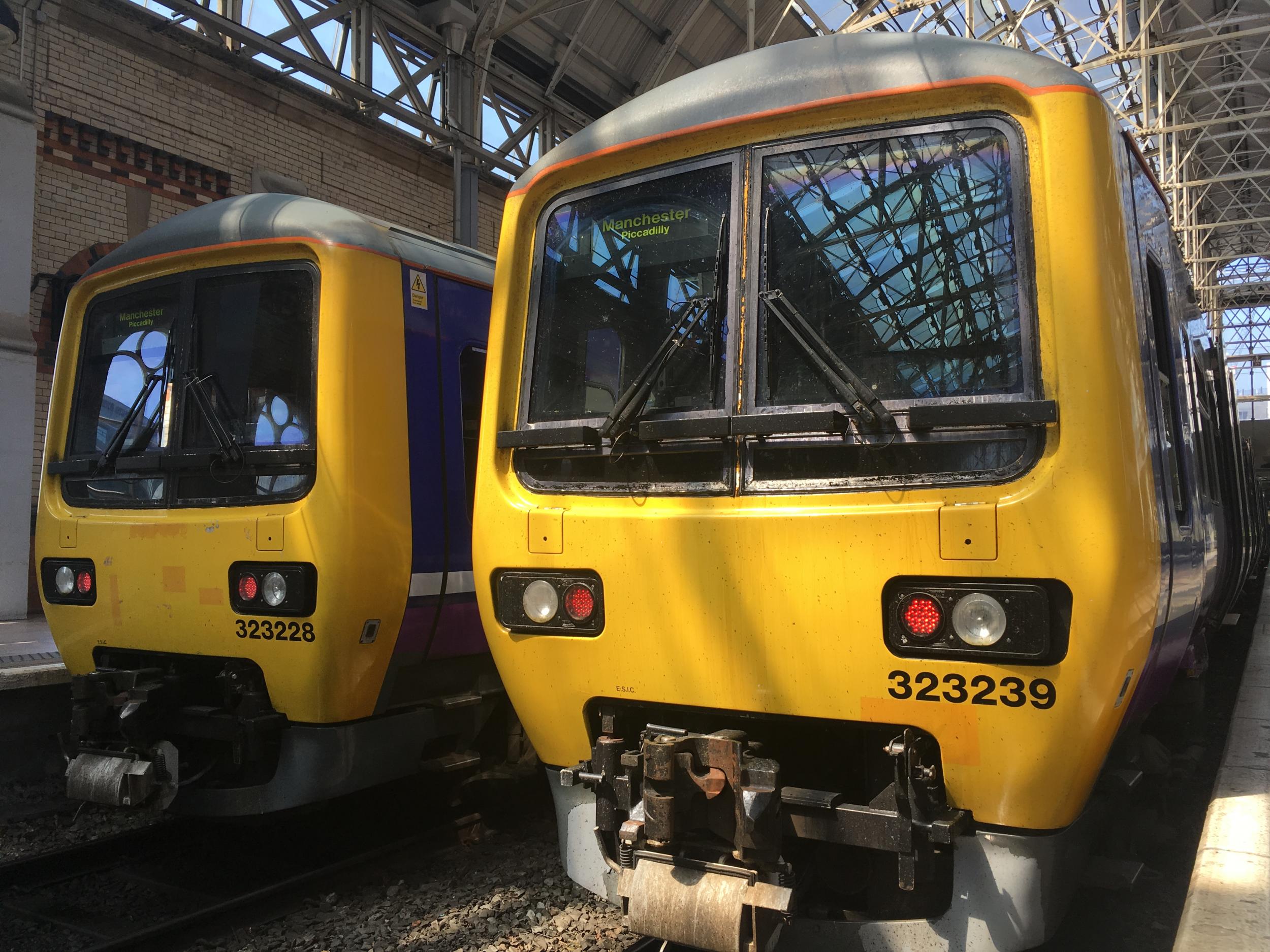Northern Rail strike adds to commuters’ misery
RMT general secretary Mick Cash: ’The Rail Safety and Standards Board is actually the employers’ safety board. They pay for the board to come up with its findings’

Your support helps us to tell the story
From reproductive rights to climate change to Big Tech, The Independent is on the ground when the story is developing. Whether it's investigating the financials of Elon Musk's pro-Trump PAC or producing our latest documentary, 'The A Word', which shines a light on the American women fighting for reproductive rights, we know how important it is to parse out the facts from the messaging.
At such a critical moment in US history, we need reporters on the ground. Your donation allows us to keep sending journalists to speak to both sides of the story.
The Independent is trusted by Americans across the entire political spectrum. And unlike many other quality news outlets, we choose not to lock Americans out of our reporting and analysis with paywalls. We believe quality journalism should be available to everyone, paid for by those who can afford it.
Your support makes all the difference.“Consider whether travel is necessary,” is the message from the train operator Northern as the latest round of strikes begins.
The Northern network is operated by Arriva Rail North, and extends from Nottingham to Northumberland and Stoke-on-Trent to Carlisle. Passengers are already enduring widespread cancellations and delays as a result of the botched introduction of new timetables: a wholesale schedule change was introduced on 20 May, even though Northern had insufficiently trained drivers.
After several days of extreme disruption, Northern brought in an emergency timetable, intended to remain in place until the end of July. But the train operator has brought in yet more schedules, to cover the stoppages on Tuesday, Thursday and Saturday, and says: “The timetables replace all others – including those put in place for engineering work.”
Northern says 43 per cent of trains will run, mostly between 7am and 7pm. On some lines there will be no trains at all. Between Lancaster and Morecambe, just two services will run in each direction all day – and both will be bus-replacement services.
The latest bout of industrial action has been called by the National Union of Rail, Maritime and Transport Workers (RMT) over plans to change the role of guards, including the introduction of driver-controlled operation of the train doors.
The RMT general secretary, Mick Cash, told Radio 4’s Today programme that Northern plans to cut guards from half the trains in the region.
“We want a safe, secure and accessible railway,” he said.
Northern insists: “We want to talk about modernising with RMT, guaranteeing jobs and pay for our 1,300 conductors for at least the next eight years, until the end of our franchise.
The more strike action continues the harder it is for Northern to give long-term assurances and commitments.”
Mr Cash also rejected the findings of the railway’s official safety watchdog that driver-controlled operation is safe, saying: “The Rail Safety and Standards Board is actually the employers’ safety board. They pay for the board to come up with its findings.
“Who pays the piper calls the tune.”
The RMT has suspended a planned three-day strike on South Western Railway later this week after talks at the conciliation service, Acas. The industrial action would have hit the Royal Ascot meeting, which begins today.
At a Transport Select Committee hearing on Monday, David Brown, managing director of Arriva Rail North, said he was “personally and truly sorry” about the timetable shambles.
He told MPs that he had asked for the implementation of the new timetables to be postponed. But, he said: “A significant number of other players did not want that to happen.”
Join our commenting forum
Join thought-provoking conversations, follow other Independent readers and see their replies
Comments